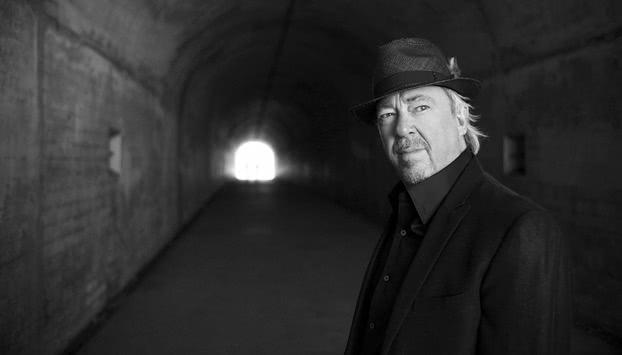At 70 years old, Boz Scaggs recently commenced his sixth decade as a recording artist. Aside from featuring on a couple of Steve Miller Band records in the late ’60s, Scaggs has devoted the majority of his career to the art and practice of songwriting. His solo discography is 18 albums long, running the gamut from roots rock and blue-eyed soul to MOR pop and slick modern blues.
With 2003’s But Beautiful and 2008’s Speak Low, Scaggs stepped away from songwriting to try his hand at a selection of jazz standards. Featuring several pre-’50s favourites such as ‘What’s New’and ‘How Long Has This Been Going On?’, Scaggs describes the back-to-back records as “the hardest I’ve ever made as a singer”. After satisfying this challenge,he set about explicitly demonstrating his greatest influences. This pursuit is responsible for 2013’s Memphis and Scaggs’ new LP A Fool To Care.
“In some ways I think of these records as two parts of a trilogy,” he says. “I’ve been working with Steve Jordan, and he and I are like archaeologists going through a body of work. We have similar interests in the backgrounds of the music that we both love – it all stems from the music that came out of the South, and out of New Orleans specifically. So it includes the blues, rhythm and blues with some gospel tones, and some jazzy tones.”
Like Memphis, A Fool To Care was recorded in the state of Tennessee, which is no mere coincidence. Given the specificity of their chosen homage, Scaggs and his producer Jordan were fairly picky about the recording location.
“When we started to talking about recording the Memphis album, we said, ‘Where is the best place to go to get the feeling and the sound we’re looking for?’ We both agreed it was a studio in Memphis called Royal Studios. After working in that studio, we felt we’d found the sound. [For A Fool To Care] the natural extension was to find a studio that was sonically a little more sophisticated. We chose Nashville for the environment and particularly Blackbird Studio, which ranks among the top three or four studios in the world in terms of their gear.”
For years, mature-age artists have been trying their luck with the classics. Despite being a commonly adopted format, the results frequently sound limp and incidental. However, the likes of Neil Young and Bob Dylan have used this ploy to their advantage, treading through the past in order to accentuate aspects of their own artistic signature. For Scaggs, this was precisely the point.
“All of the American music that I have come to love, including rock’n’roll and rockabilly and all the rest, Mr. Jordan and I have been exploring that and trying to find the essential elements,” he says. “It’s where we built our musical knowledge. It’s their grooves, their rhythms, all the bits and pieces of things that made us who we are as individuals and musicians. So we’re just exploring that, and in the course of exploring we’re having a lot of fun. We’re getting to do something that is really important and meaningful for us, but we think we’re doing something quite unique.
“It’s all just experiments and exploration as musicians,” he adds. “At this point in my life I do what I want to do and I enjoy every aspect of what I do. It’s fun, yes; it’s a challenge, by all means; but I’m doing exactly what I want to do. This is where I live in my musical mind.”
Let’s make it clear: there’s no guarantee that someone’s undying affection for a song sets them up to produce a worthwhile reinterpretation, even if they are an accomplished artist. Scaggs is no mug, however, and knows when to exercise restraint.
“Any song we can’t entirely grasp with our own approach should be left alone,” he says. “We find, in the course of making demos, some things that we really can’t get enough of our interpretation into. But once it becomes ours and we continue to love it after exploring, then we put it onto the shortlist to record.
“As a singer, I’ve listened to thousands of singers in my life, and from each one I take or reject a little bit that I add to my own style. Some of my favourite singers, for example Ray Charles or Bobby ‘Blue’ Bland, I cannot do their material because I don’t have the voice for it. But there are two songs on this record by Curtis Mayfield, who’s also a hero of mine, and I can work with his material.”
It’s always reassuring to see recognised musicians fill with awe when speaking about their favourite music. It signifies that a lifetime of hard labour in the music biz hasn’t extinguished the emotional connection that lured them into this realm. Still, while Scaggs acknowledges the debts owed to his forebears, he isn’t resigned to feelings of inferiority.
“We’re all playing to our peers,” he says. “I’m very conscious of their sensibilities when I work and I’m proud of what I do and I’m proud of what I bring to the music. I would love for Curtis Mayfield or Bobby Bland or Ray Charles to hear what I’ve done, because I think they would probably recognise something of themselves, if I could take a little bit of pride [in] my own work.”
Boz Scaggs’A Fool To Care is out Friday March 27 through 429/Universal.


































